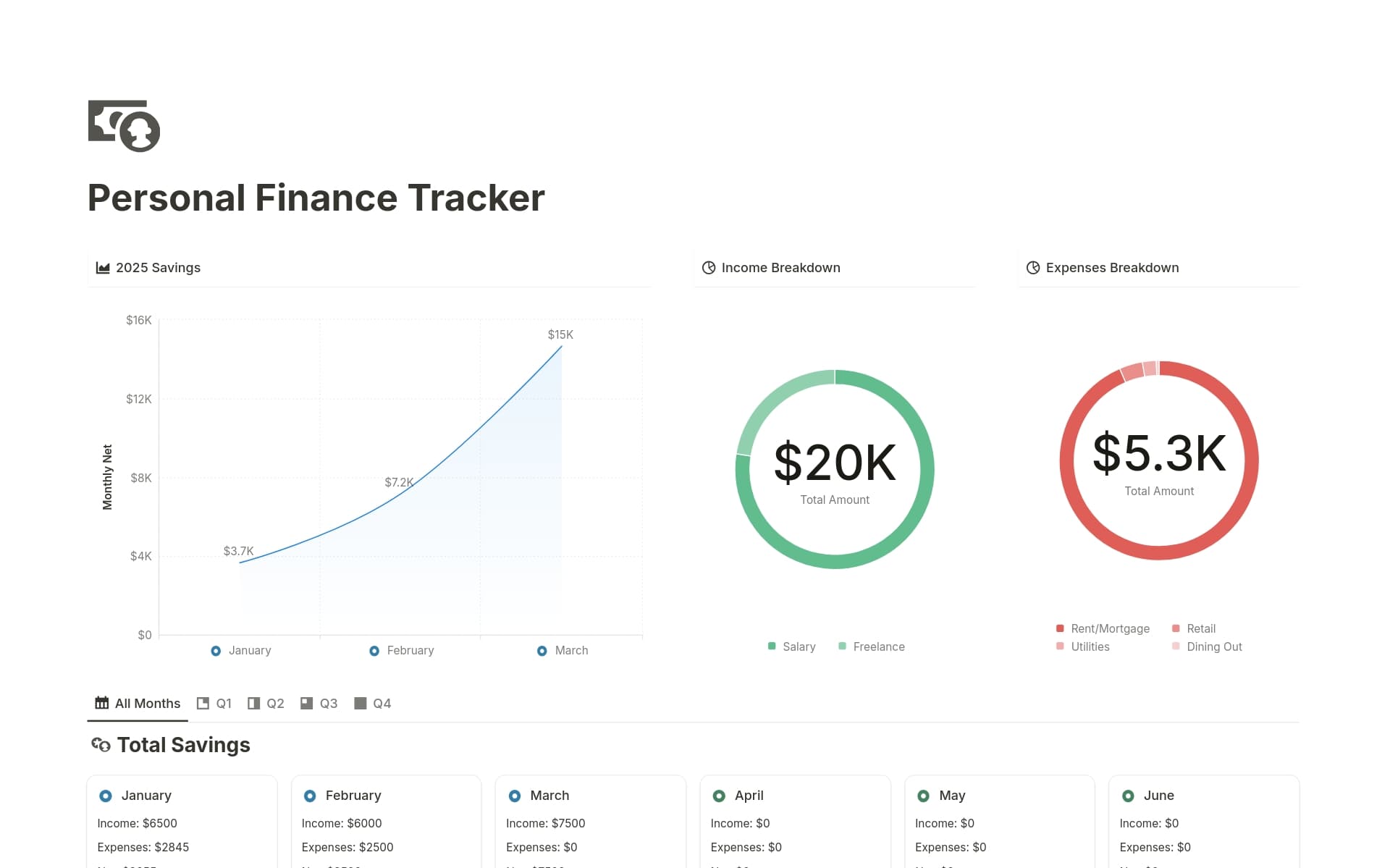A Discovery Dashboard is essential for organizing and streamlining the process of exploring new ideas, products, or user insights. It helps in capturing and evaluating opportunities based on structured criteria, ensuring that the best ideas are pursued. A Discovery Dashboard template in Notion can simplify this process by providing a ready-made framework that can be customized to your specific needs, saving time and enhancing focus.
Before you dive into creating your own Discovery Dashboard, take a look at these Notion templates to make the process smoother and more efficient.
What Should Discovery Dashboard Templates Include?
Choosing the right Discovery Dashboard Template in Notion can significantly enhance your project management and data visualization capabilities. Here are key components to look for when selecting a template:
Comprehensive Data Integration: The template should allow for seamless integration with various data sources, ensuring that all relevant information is accessible and up-to-date.
Customizable Views: It should offer flexibility in visualization, including options for charts, tables, and graphs, tailored to specific project needs or user preferences.
Interactive Elements: Look for templates that include interactive elements such as filters and drill-down capabilities, which can enhance the user experience and provide deeper insights.
Collaboration Features: A good dashboard should support collaboration, allowing multiple users to contribute, edit, and update in real-time, fostering a team-oriented approach to data handling.
Selecting a Discovery Dashboard Template with these components will ensure a more efficient and effective management of your projects and data within Notion.
What Should Discovery Dashboard Templates Avoid?
When selecting a Discovery Dashboard template in Notion, it's essential to be aware of certain features that might hinder rather than help. Here are three key components to steer clear of:
Overly Complex Layouts: Templates with too many sections or intricate designs can lead to confusion and reduce usability. Opt for simplicity to enhance productivity.
Non-Customizable Elements: Avoid templates that don't allow you to tweak and tailor components to your needs. Flexibility is key in adapting the dashboard to serve your specific project requirements.
Heavy Use of Automation: While automation can be beneficial, excessive use in a template can make it rigid and difficult to modify. Choose templates that balance manual control with automation.
Choosing the right template involves avoiding these pitfalls to ensure that the tool enhances your workflow and adapts to your project's needs effectively.








